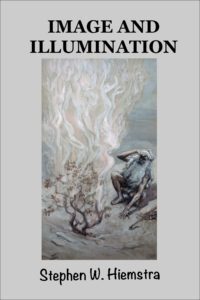Discernment

For the word of God is living and active,
sharper than any two-edged sword,
piercing to the division of soul and of spirit,
of joints and of marrow, and discerning the thoughts
and intentions of the heart. (Heb 4:12)
By Stephen W. Hiemstra
The image of God that we often picture as visual and the character traits that we ascribe to God are primarily externally observable, like sovereignty, transcendence, and holiness. When Thomas Aquinas described God as omniscient, however, he had more in mind than God’s access to an infinite amount of data. God is able wisely to employ the knowledge at his fingertips. This characteristic is often referred to as discernment.
The Greek word for discernment, κριτικὸς (BDAD 4415), means: “able to judge the thoughts and deliberations of the heart.” It harkens back to our discussion of Hebrew anthropology where head and heart cannot separated. Who else would talk about “the thoughts and deliberations of the heart”? Surface and depth are united together.
The Creation
In the creation accounts, discernment is suggested from the beginning when God created the heavens and the earth at the same time (Gen 1:1). There is no separate creation of one or the other. Heaven and earth form a literary unit called a merism, which is to define whole by reference to the endpoints. Heaven and earth rhetorically means all of creation.
We see a series of dichotomies in the creation accounts: Darkness and light, day and night, waters and dry land, male and female. We generally view them as separations, because the text makes this explicit: “And God saw that the light was good. And God separated the light from the darkness.” (Gen 1:4) The separation is also described as good.
The creation of male and female in the image of God is not arbitrary. Only together are human beings able to participate in God’s eternal nature and have dominion over the earth, as promised:
“And God blessed them. And God said to them, Be fruitful and multiply and fill the earth and subdue it, and have dominion over the fish of the sea and over the birds of the heavens and over every living thing that moves on the earth.” (Gen 1:28)
Implicit in this statement is the curse of being given over to other passions that the Apostle Paul expresses in Romans 1:26-28. Refusing God’s creation mandate places dominion at risk.
Solomon’s Discernment
The pattern of discernment is expressed vividly in the story of King Solomon and the two prostitutes both claiming to be a child’s mother. When Solomon threatens to divide the child with a sword, the true mother begs for the child’s life, while the pretender agrees to the division. In displaying their true motivations, Solomon is able to discern the identity of the mother (1 Kgs 3:16-27).
The testing of the prostitutes may seem extreme, but we see God himself testing his favorite servant, Job:
“But stretch out your hand and touch all that he [Job] has, and he will curse you to your face. And the LORD said to Satan, Behold, all that he has is in your hand. Only against him do not stretch out your hand. So Satan went out from the presence of the LORD. (Job 1:11-12)
Job perseveres in spite of Satan’s cruelty, but the point is that God’s process of discernment cuts him to the core, as suggested in the Hebrew’s 4:12 statement about scripture cited above.
Career Discernment
We often limit our thinking about discernment to decisions about our calling in employment. For Ortberg (2015, 257), the opened door is a fitting metaphor for how God invites us to step out in faith and service rather than having us wait for confirmation and comfort. He writes: “It’s an open door. To find out what’s on the other side, you’ll have to go through.” (Ortberg 2015, 10) This opened door invitation always appears riskier than it really is because of who offers the invitation and for what purpose.
The purpose that he sees is intensely interesting: “God’s primary will for your life is not the achievements you accrue; it’s the person you become.” (Ortberg 2015, 15). As God tells Abram: “I will bless those who bless you, and him who dishonors you I will curse, and in you all the families of the earth shall be blessed.” (Gen 12:3; 9, 35). In offering such blessings, God invites us to decide which doors to go through as part of our sanctification and our decisions form our character and mold our identity (Ortberg 2015, 8, 16).
What we see in this illustration of discernment is an application of Hebrew anthropology—developing the heart and mind together—and a divine parent leading the way through a difficult life transition.
The Apostle Paul offers a key scriptural guide to discernment: “Do not be conformed to this world, but be transformed by the renewal of your mind, that by testing you may discern what is the will of God, what is good and acceptable and perfect.” (Rom 12:2) God offers us consolation in our temptations and suffering, but only on the path to transformation. God never condemns us to wallow in our grief.
References
Bauer, Walter (BDAG). 2000. A Greek-English Lexicon of the New Testament and Other Early Christian Literature. 3rd ed. Ed. Frederick W. Danker. Chicago: University of Chicago Press. .
Ortberg, John. 2015. All the Places to Go—How Will You Know? God has Placed Before You an Open Door: What Will You Do? Carol Stream: Tyndale House Publishers, Inc.
Discernment
Also see:
The Who Question
Preface to a Life in Tension
Other ways to engage online:
Author site: http://www.StephenWHiemstra.net
Publisher site: http://www.T2Pneuma.com
Newsletter: https://bit.ly/Mem_2022
The post Discernment appeared first on T2Pneuma.net.



